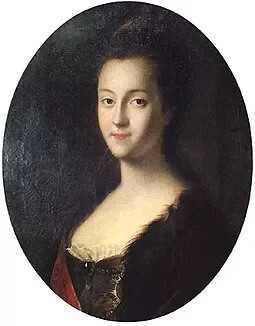Real Celebrities Never Die!
OR
Search For Past Celebrities Whose Birthday You Share

sourcewikimedia.org
Catherine the Great
Birthday:
21 Apr, 1729
Date of Death:
06 Nov, 1796
Cause of death:
Stroke
Nationality:
Russian
Famous As:
Empress
Age at the time of death:
67
Catherine the Great's Quote's
Early Life – Rise to Power: A Coup That Changed Russia
Catherine the Great was one of the most formidable and influential rulers of 18th-century Russia, a leader whose ambition and intellect reshaped the empire. Born in 1729 as Sophie Friederike Auguste von Anhalt-Zerbst-Dornburg in Prussia, she was not originally destined for the Russian throne. However, fate and her own determination would carve a different path for her.
In 1745, Sophie married Peter III, the heir to the Russian throne, and took the name Catherine. Her marriage, however, was troubled, and Peter’s unpopular policies alienated both the court and the military. Seeing an opportunity to assert herself, Catherine orchestrated a coup d’état in 1762, overthrowing her husband and seizing the throne for herself. With the support of the military and key political allies, she ascended as Empress of Russia, marking the beginning of one of the most remarkable reigns in Russian history.
A Champion of Enlightenment and Reform
Catherine was deeply influenced by the Enlightenment and sought to modernize Russia’s legal and administrative structures. She reformed the legal system, introduced new economic policies, and strengthened the empire’s governance. Under her rule, Russia saw a flourishing of arts, education, and culture. She founded the Hermitage Museum, which today houses one of the world’s most prestigious collections of art. She also corresponded with leading philosophers of the time, including Voltaire and Diderot, embracing ideas that shaped her policies.
Military Expansion and Diplomatic Prowess
Catherine’s reign was also marked by significant territorial expansion. Through wars and strategic diplomacy, she expanded Russia’s borders into Crimea, Poland, and the Black Sea region, solidifying the country as a major European power. Her leadership strengthened the Russian military and increased the empire’s influence on the global stage.
Personal Life : A Complex and Controversial Figure
Beyond her political and military achievements, Catherine’s personal life was equally fascinating and controversial. She had numerous lovers throughout her reign, many of whom were granted powerful positions in her administration. Though her personal affairs often became the subject of gossip and speculation, they did little to diminish her authority or political acumen.
Her relationship with her son, Paul I, was strained, and she reportedly considered bypassing him in the line of succession. However, upon her death in 1796 at the age of 67, Paul I succeeded her, ushering in a new era for Russia.
Legacy of an Empress
Catherine the Great left an indelible mark on Russian history. Her reign is remembered as one of progress, expansion, and cultural renaissance. She transformed Russia into a major European power and set the stage for its future development. Despite the controversies that surrounded her, she remains one of history’s most compelling and influential rulers, a woman who defied expectations and reshaped an empire through intellect, strategy, and sheer force of will.
Name:
Catherine the Great
Popular Name:
Catherine the Great
Gender:
Female
Cause of Death:
Stroke
Spouse:
Place of Birth:
Stettin, Kingdom of Prussia, Holy Roman Empire
Place of Death:
Winter Palace, Saint Petersburg, Russian Empire
Occupation / Profession:
Personality Type
Debater: Smart and curious thinkers who cannot resist an intellectual challenge. Catherine was expressive, curious, and spontaneous who enjoyed debating and thinking about issues from different perspectives.
After her death, rumors spread that she died while having sex with a horse. However, there is no truth to this rumor and she simply died of a stroke.
Although she became the longest-reigning empress of Russia, she wasn’t Russian. It is rumored that Peter was unable to consummate his marriage with Catherine.
Catherine became sole ruler in a bloodless coup that turned deadly when her husband, Peter, ended up dead.
Catherine had an extramarital affair with Sergei Saltykov and it is believed that he fathered her first son, Paul.
She faced more than a dozen uprisings during her reign.
Catherine The Great was the longest-reigning empress of Russia.
